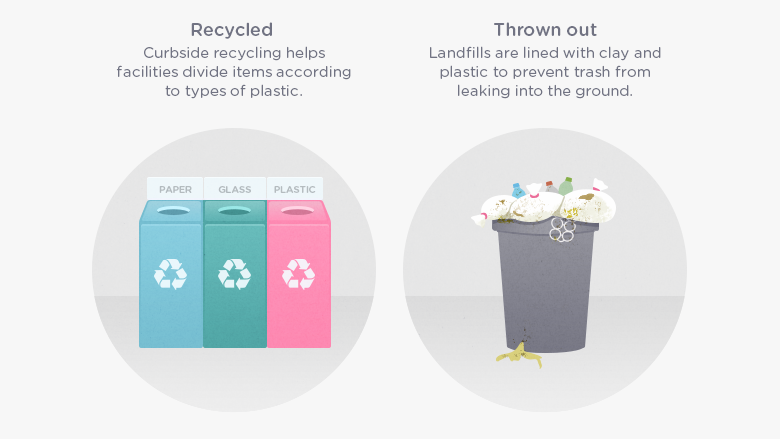
The Texas Longhorn and the sea turtle may not seem to have much in common, but both share a common enemy: the plastic bag.
To sea turtles, bags in the ocean look like delicious floating jellyfish. And longhorn cattle will eat just about anything, including bags that blow into their pastures. Once ingested, the plastic plugs up their bowels and they die within a few days.
"It's a miserable death," said Ohio rancher Darol Dickinson, 73. He said he started noticing the problem 40 years ago, and the loss of livestock is a blow to his bottom line. "It's one of those things that ranchers lose money on."
Money, animals, the environment -- there are a lot of reasons to reach for a reusable bag instead of a plastic one. And in some places, it's no longer a choice: there are 132 cities or counties across the country that have banned plastic bags or started charging for them. Some opt to use the extra funds for local environmental development, while for others it just means more money for retailers.
Next year, California will be the first state to ban plastic bags. Under new legislation, stores will offer customers recycled paper bags or compostable bags that will cost at least a dime.
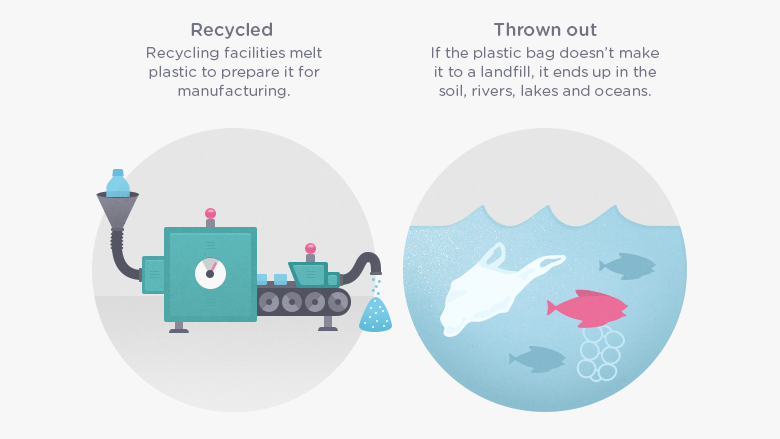
Hawaii is also taking serious strides to control the problem. Though there's not official statewide legislation, most of Hawaii's counties have banned plastic bags, and Honolulu, the state's capital and its most populous city, has a plastic bag ban that goes into effect next year.
"Cities that have wanted to be seen on the forefront of doing something about environmental problems have [passed bans]," said Janet Larsen, director of research at the Earth Policy Institute.
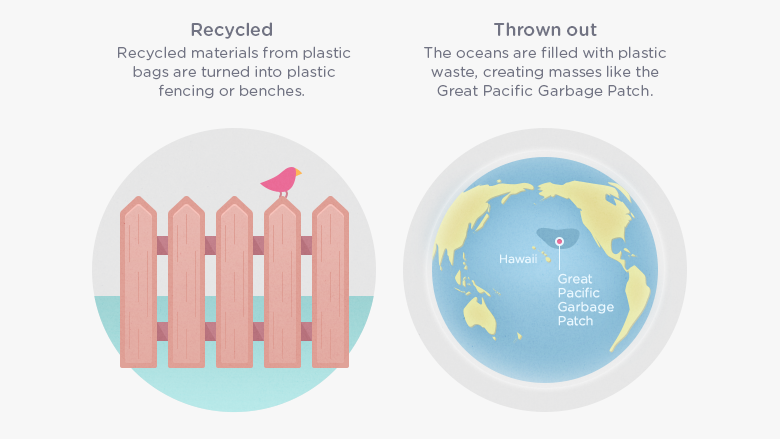
Honolulu's mayor Kirk Caldwell can't wait for the ban to go in effect.
He said he goes surfing every Sunday and still gets plastic bags stuck around his arms when he paddles in and out. He's been a longtime proponent of the bag ban, and says it has been an organic, grassroots movement.
"Instead of it coming from the state, from the top down, it came from the bottom up," he said. "The retail merchant association is a very strong lobbying group here in Hawaii...and Hawaii is such a small place. People don't want to say no to people they see as their neighbors."
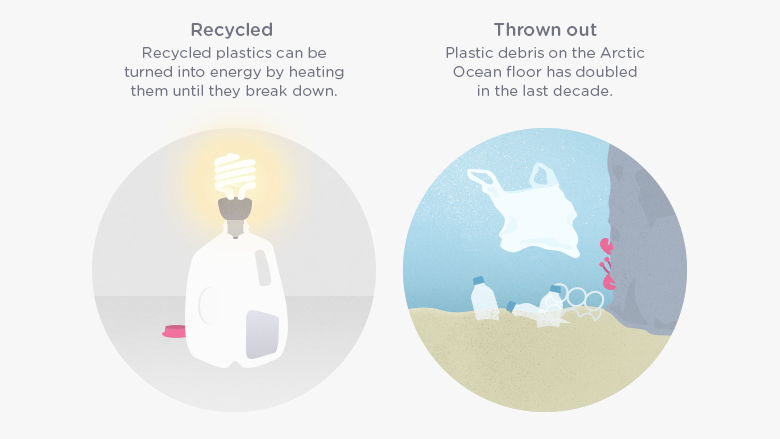
Nationwide, 100 billion plastic bags are thrown out every year. The U.S. National Park Service says it takes 10-20 years for the bags to break down, but some advocates, like social change organization Shift, say it can take as long as 500 years. (Plastic bottles take 450 years, according to the park service.)
One reason there are so many conflicting numbers is because the plastic bag hasn't been around that long. It was invented by a Swedish company in 1965, and introduced to the United States in 1976. In 1982, the grocery chains Safeway (SWY) and Kroger (KR) began asking customers, "Paper or plastic?"
Neither options are that great for the environment. While paper bags are compostable, some are made with inks that can leak into the soil and cause pollution.
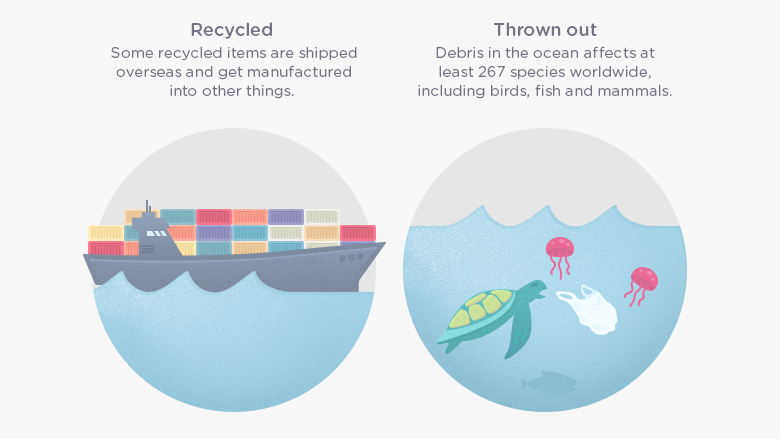
And while plastic bags are recyclable, advocates say it's still better to use a reusable bag. Even when people dutifully place plastic into a recycling bin, it might never make it to the recycling center -- only between 60% to 80% of recycling is actually recycled, and the rest is often litter.
Larsen recommends an organic cotton bag, or, for the more committed DIY-er, taking an old T-shirt and sewing it into a bag.
"The plastic bag hasn't been around that long," she said. "We lived without them before and we can certainly live without them in the future."
--Illustrations by Dominic Aratari


